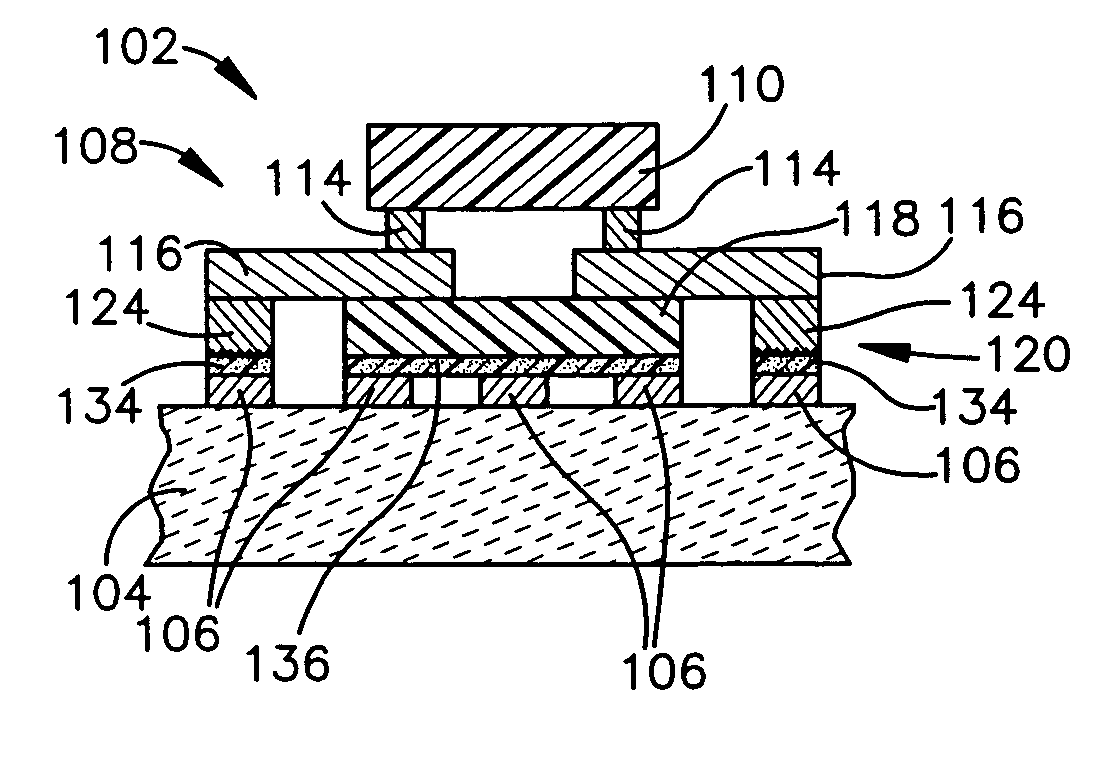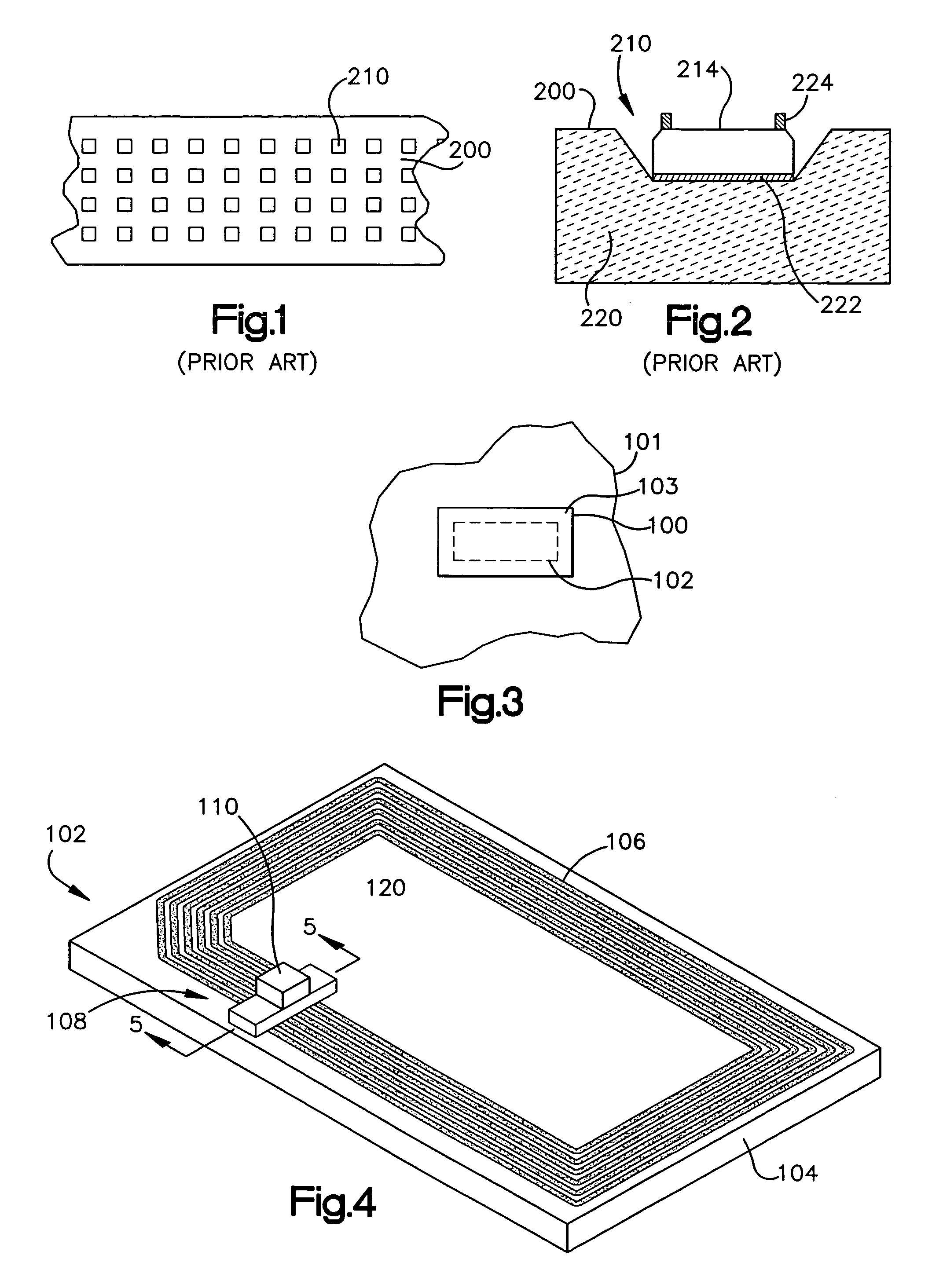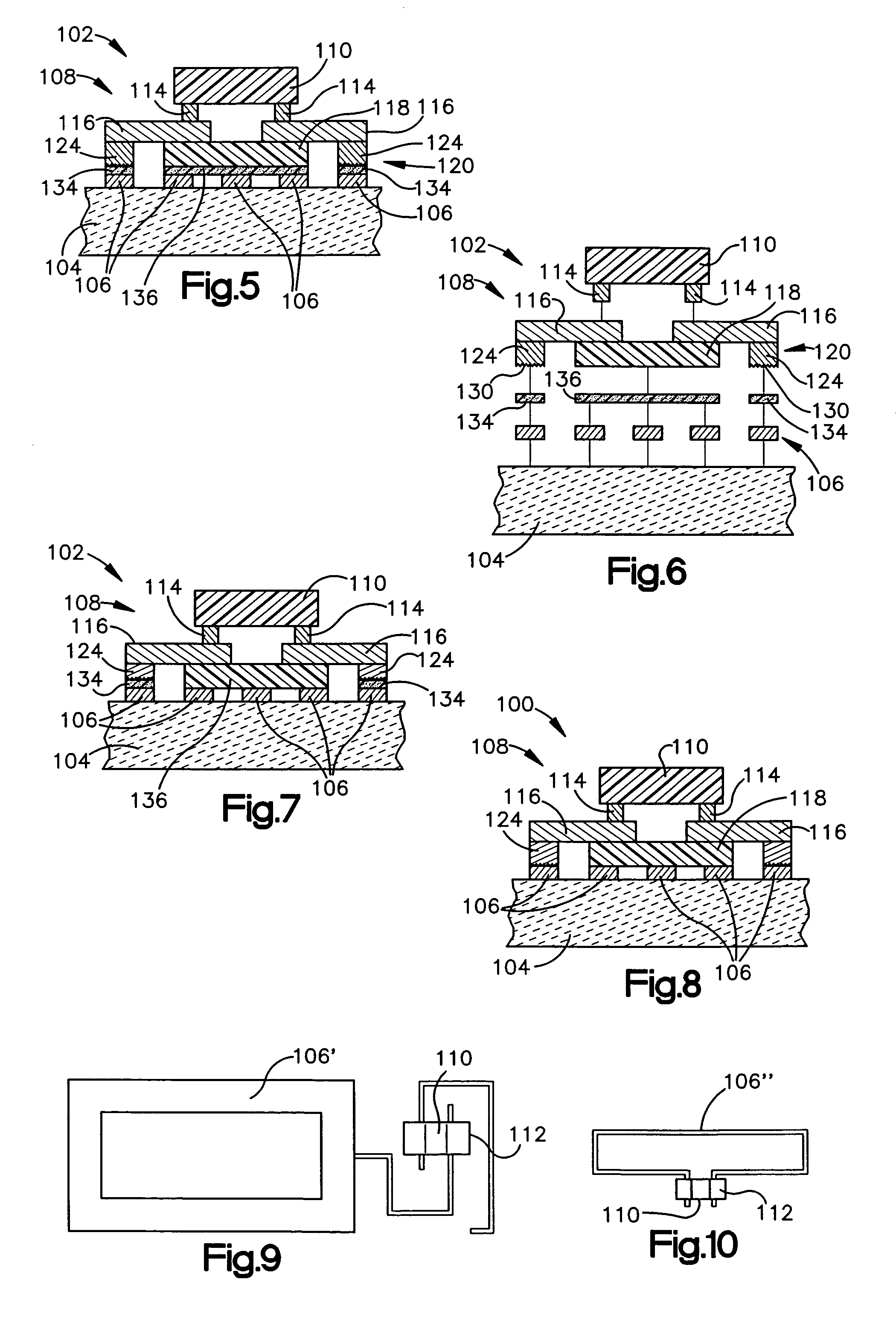RFID device and method of forming
a technology of rfid devices and forming methods, applied in the direction of burglar alarm mechanical actuation, protective material radiating elements, instruments, etc., can solve the problems of large area reducing the accuracy required for placement of ics during manufacture, serious limitations in high-speed manufacturing of ic placement and mounting, and other substantial manufacturing problems to be solved
- Summary
- Abstract
- Description
- Claims
- Application Information
AI Technical Summary
Benefits of technology
Problems solved by technology
Method used
Image
Examples
Embodiment Construction
RFID Inlays—General Considerations
[0071]By way of overview, the present invention involves structures and method for operatively coupling parts of an RFID inlay together. Specifically, the invention relates to conductive or capacitive connections between an RFID antenna and an interposer that is in turn contains a chip, such as an integrated circuit chip. The conductive connection may include conductive bumps attached to the interposer, and / or may include conductive traces, such as a conductive ink traces. The capacitive connection may involve putting the antenna and the interposer into close proximity, to allow capacitive coupling between the antenna and the interposer. The capacitive and conductive connections provide a convenient, fast, and effective way to operatively couple antennas and interposers.
[0072]Referring initially to FIG. 3, an RFID tag or label 100 is adhered or otherwise coupled to an object 101. The RFID tag or label 100 includes an RFID inlay 102 and a printable f...
PUM
| Property | Measurement | Unit |
|---|---|---|
| thickness | aaaaa | aaaaa |
| thickness | aaaaa | aaaaa |
| thickness | aaaaa | aaaaa |
Abstract
Description
Claims
Application Information
 Login to View More
Login to View More - R&D
- Intellectual Property
- Life Sciences
- Materials
- Tech Scout
- Unparalleled Data Quality
- Higher Quality Content
- 60% Fewer Hallucinations
Browse by: Latest US Patents, China's latest patents, Technical Efficacy Thesaurus, Application Domain, Technology Topic, Popular Technical Reports.
© 2025 PatSnap. All rights reserved.Legal|Privacy policy|Modern Slavery Act Transparency Statement|Sitemap|About US| Contact US: help@patsnap.com



